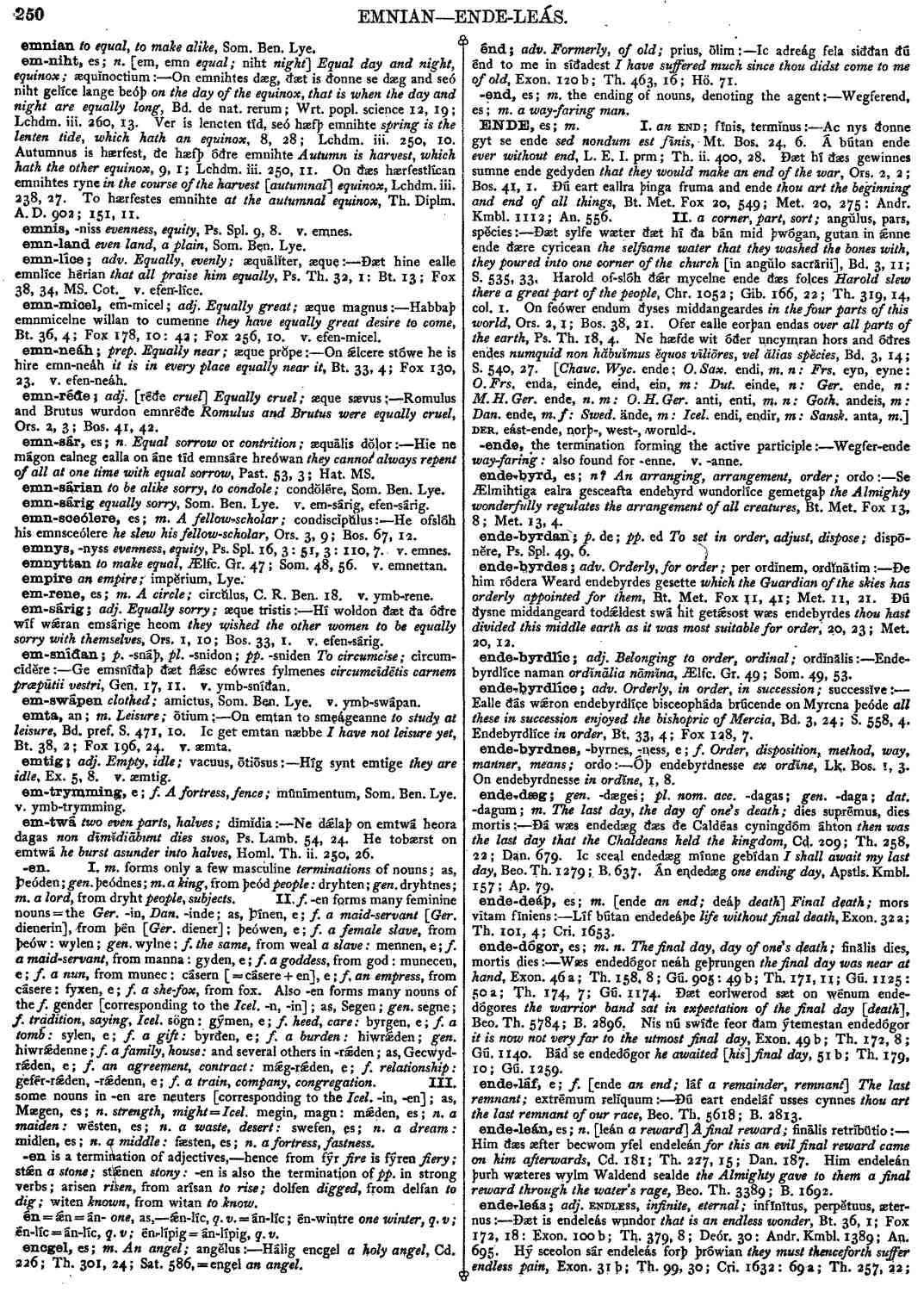ENDE
- noun [ masculine ]
-
Ac nys ðonne gyt se ende
sed nondum est fīnis,
- Mt. Bos. 24, 6.
-
Á bútan ende
ever without end,
- L. E. I. prm ;
- Th. ii. 400, 28.
-
Ðæt hí ðæs gewinnes sumne ende gedyden
that they would make an end of the war,
- Ors. 2, 2 ;
- Bos. 41, 1.
-
Ðú eart eallra þinga fruma and ende
thou art the beginning and end of all things,
- Bt. Met. Fox 20, 549;
- Met. 20, 275 : Andr. Kmbl. 1112 ;
- An. 556 .
-
II. a corner, part, sort; angŭlus, pars, spĕcies :-- Ðæt sylfe wæter ðæt hí ða bán mid þwógan, gutan in ǽnne ende ðære cyricean the selfsame water that they washed the bones with, they poured into one corner of the church [in angŭlo sacrārii], Bd. 3, 11; S. 535, 33, Harold of-slóh ðǽr mycelne ende ðæs folces
Harold slew there a great part of the people,
- Chr. 1052 ;
- Gib. 166, 22;
- Th. 319, 14, col. 1 .
-
On feówer endum ðyses middangeardes
in the four parts of this world.
- Ors. 2, 1;
- Bos. 38, 21.
-
Ofer ealle eorþan endas
over all parts of the earth,
- Ps. Th. 18, 4.
-
Ne hæfde wit óðer uncymran hors and óðres endes
numquid non hăbuĭmus ĕquos vīliōres, vel ălias spĕcies,
- Bd. 3, 14;
- S. 540, 27.
Bosworth, Joseph. “ENDE.” In An Anglo-Saxon Dictionary Online, edited by Thomas Northcote Toller, Christ Sean, and Ondřej Tichy. Prague: Faculty of Arts, Charles University, 2014. https://bosworthtoller.com/9385.
Checked: 1